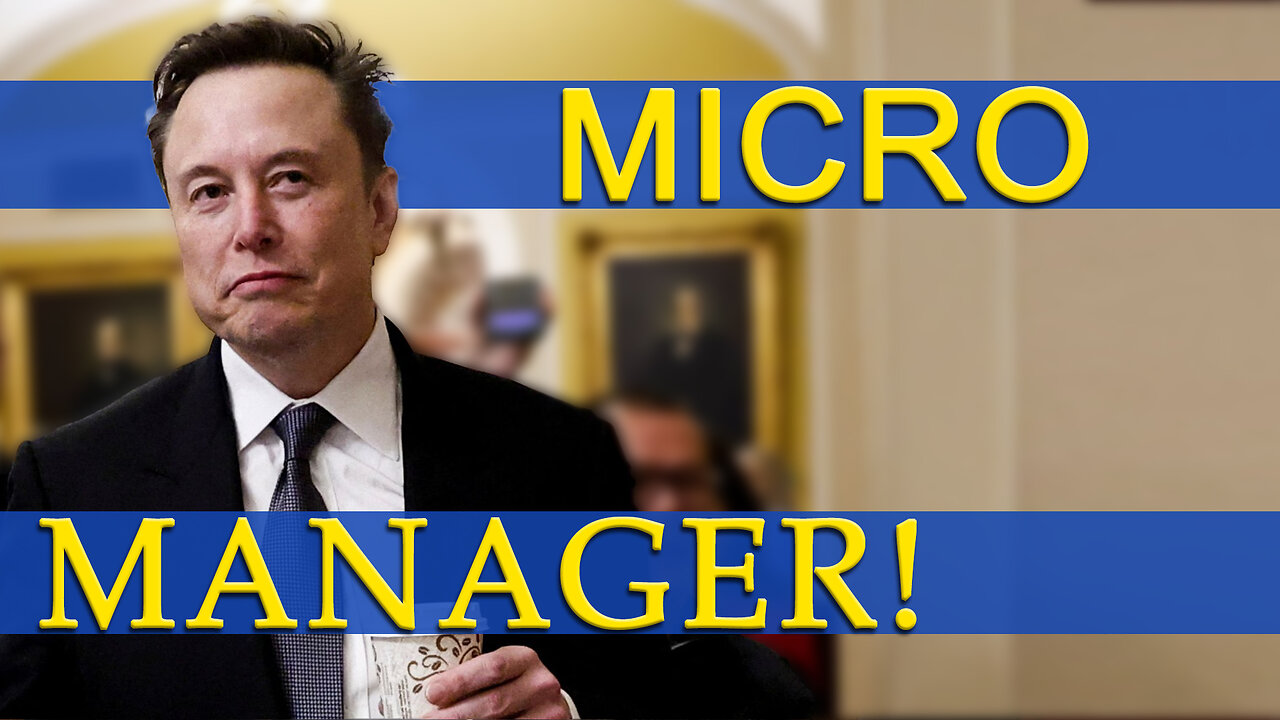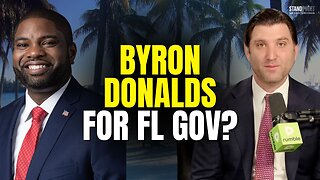Premium Only Content

Elon Musk and Kash Patel Clash Over Threats
In a striking showdown encapsulating the ongoing struggle between innovation and established governmental norms, Elon Musk's recent email directive demanding accountability from federal employees has triggered swift backlash from agency heads, including newly-appointed FBI Director Kash Patel.
Musk, who serves as an advisor to former President Donald Trump while overseeing the Department of Government Efficiency (DOGE), sent a polarizing email to over 23 million federal workers, mandating them to submit a report detailing five accomplishments from the past week by a midnight deadline. The email, ominously titled "What did you do last week?", came with a stark warning - failure to comply would be treated as a resignation.
The fallout from this unprecedented request has been swift and tumultuous. Patel, known for his controversial tenure and alignment with the Trump administration, promptly instructed FBI personnel to disregard Musk's email, citing the agency's established protocols for evaluating employee performance. He emphasized a measured approach, stating that departmental reviews would proceed under FBI guidelines, not Musk's dictates.
The chaos intensified as various agency leaders, encompassing the Pentagon, Homeland Security, and the Department of Defense, scrambled to provide contradictory guidance to their employees. Some agencies, like the Treasury, leaned towards compliance but advised caution regarding sensitive data, while others, like the FBI, stood firm against Musk's demands.
Critics, including some within Trump's own circle, have raised concerns about Musk's heavy-handed management style, labeling the move as reckless and detrimental to employee morale. Even Republican Senator John Curtis publicly chastised Musk, urging a more empathetic approach to federal workers already weathering a climate of uncertainty.
Adding fuel to the fire, the American Federation of Government Employees, the largest labor union for U.S. federal employees, condemned Musk's ultimatum as unlawful, echoing concerns that such sweeping demands could violate labor laws. A lawsuit has already been filed in California aiming to curtail potential mass layoffs related to Musk's initiatives.
In response to the unfolding crisis, a federal judge issued a temporary restraining order which prevents Musk's DOGE from accessing sensitive data tied to the Education Department and the Office of Personnel Management (OPM), further underscoring the severity of the situation.
This clash between Musk's push for accountability and the established order of government bureaucracy serves as a glaring emblem of the tensions that pervade the Trump administration's approach to governance. As agency heads continue to navigate the fine line between compliance with the directive and maintaining operational integrity, it remains to be seen whether Musk's tech-driven strategies can harmonize with the intricacies of federal employment practices, or if they will falter against a system fortified by tradition and employee rights.
In the storm cloud of discontent, Patel's leadership emerges as a critical counterbalance to Musk's audacious maneuvers. As federal employees brace for the fallout, the implications of this struggle echo far beyond the walls of bureaucratic offices, posing a challenging question for the future of government efficiency: can innovation truly flourish within the rigid confines of public service?
-
 LIVE
LIVE
Wahzdee
2 hours agoSniper Elite Then Extraction Games—No Rage Challenge! 🎮🔥 - Tuesday Solos
1,362 watching -
 LIVE
LIVE
Robert Gouveia
2 hours agoSenator's Wife EXPOSED! Special Counsel ATTACKS; AP News BLOWN OUT
3,580 watching -
 LIVE
LIVE
Barry Cunningham
8 hours agoTRUMP DAILY BRIEFING - WATCH WHITE HOUSE PRESS CONFERENCE LIVE! EXECUTIVE ORDERS AND MORE!
1,697 watching -
 LIVE
LIVE
Game On!
3 hours agoPUMP THE BRAKES! Checking Today's Sports Betting Lines!
377 watching -
 1:27:21
1:27:21
Redacted News
2 hours agoBREAKING! SOMETHING BIG IS HAPPENING AT THE CIA AND FBI RIGHT NOW, AS KASH PATEL CLEANS HOUSE
72.3K86 -
 1:08:28
1:08:28
In The Litter Box w/ Jewels & Catturd
22 hours agoCrenshaw Threatens Tucker | In the Litter Box w/ Jewels & Catturd – Ep. 749 – 2/25/2025
46.8K30 -
 44:57
44:57
Standpoint with Gabe Groisman
23 hours agoWill Byron Donalds Run for Florida Governor? With Congressman Byron Donalds
15.2K2 -
 1:06:25
1:06:25
Savanah Hernandez
2 hours agoEXPOSED: FBI destroys evidence as NSA’s LGBTQ sex chats get leaked?!
29.8K4 -
 1:59:58
1:59:58
Revenge of the Cis
3 hours agoEpisode 1452: Hindsight
28K3 -
 1:20:35
1:20:35
Awaken With JP
5 hours agoCrenshaw Threatens to Kill Tucker and Other Wild Happenings - LIES Ep 80
66.4K49